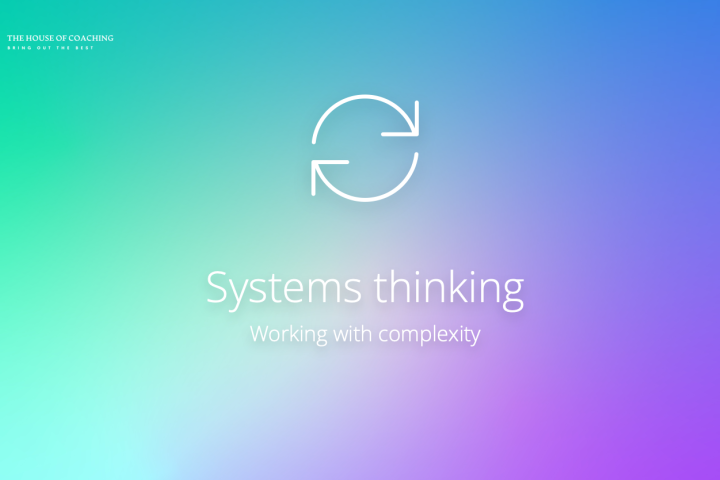

Systems thinking focuses on the interactions and relationships between the parts of a system, rather than just looking at the individual parts. It is about understanding how changes in one part of the system affect other parts of the system and how the whole system functions as a whole.
How is systems thinking used in management?
In management, systems thinking is often used to solve complex problems and make decisions in organisations. Here are some examples of how systems thinking is used in management:
- Problem solving: Systems thinking helps managers understand the causes of problems in their organisation by looking at the interactions and relationships between the components of the system, rather than just looking at symptoms.
- Strategy development: Systems thinking helps managers consider the long-term consequences of their decisions by looking at the interactions between the parts of the system and how changes in one part of the system affect other parts of the system.
- Change management: Systems thinking helps managers implement change in their organisation by looking at the interactions between the parts of the system and understanding how changes in one part of the system affect other parts of the system.
- Sustainability: Systems thinking helps managers understand how their organisation affects the larger system in which they operate, such as society and nature, and how it can contribute to sustainability.
- Communication: Systems thinking helps managers understand how information and communication flow throughout the system, and how this can be improved.
What are the pitfalls for managers who do not use systems thinking?
There are several pitfalls for managers who do not use systems thinking:
- Symptoms: Without systems thinking, managers tend to look only at symptoms, rather than the causes of problems. This can lead to temporary solutions that have no long-term impact.
- Silo thinking: Without systems thinking, managers tend to look at individual parts of the organisation instead of understanding how they are related and work together to make the whole system work. This can lead to inefficiency and conflict.
- Unforeseen consequences: Without systems thinking, managers tend to make decisions without considering their long-term consequences. This can lead to unintended consequences that are negative in the long run.
- Sustainability: Without systems thinking, managers tend to consider only their own organisation and not the larger context in which they operate, such as society and nature. This can lead to decisions that are not sustainable.
- Poor communication: Without systems thinking, managers tend to communicate from their own perspective and fail to understand how information and communication flow throughout the system. This can lead to a lack of understanding and efficiency.
What are some good books or other resources on systems thinking for managers?
There are many books and other resources on systems thinking for managers available. Here are some examples:
- "Thinking in Systems: A Primer" by Donella Meadows - This book provides an introduction to the basics of systems thinking and shows how it can be applied to all kinds of systems, from organisations to ecosystems.
- "The Fifth Discipline: The Art & Practice of The Learning Organisation" by Peter Senge - This book introduces the concept of the "learning organisation" and shows how systems thinking can be used to develop organisations that continuously improve themselves.
- "Donella Meadows' Thinking in Systems" by Donella Meadows, Diana Wright - This book is a practical guide to applying systems thinking in management and provides many examples and exercises to apply the learning.
- "Systems Thinking for Social Change" by David Peter Stroh - This book focuses on applying systems thinking in social change and offers practical tools for change management and problem solving.
- "The Systems Thinking Playbook" by Linda Booth Sweeney, Dennis Meadows, et al. - This book provides an accessible, practical guide to systems thinking and offers many exercises and tools to apply systems thinking in practice.
In addition, there are numerous websites, blogs, podcasts and videos available where you can keep yourself informed about systems thinking and learn how to apply it in management.
In what ways can you learn to apply systems thinking in your organisation?
There are several ways to apply systems thinking in an organisation:
- Learn the principles of systems thinking: Learn the basics of systems thinking by reading about the theory, participating in workshops and trainings, or working with a coach who has experience in systems thinking.
- Applying systems thinking in daily work: Try to apply systems thinking in your daily work by looking at the bigger picture, understanding relationships and interactions between parts of your organisation and considering how changes in one part of the system affect other parts of the system.
- Exercise systems thinking when solving problems: Try to use systems thinking when solving problems in your organisation by looking at the causes of problems and not just symptoms.
- Try to use systems thinking when making decisions: Try to use systems thinking when making decisions in your organisation by looking at the long-term consequences of your decisions.
- Communicate systems thinking: Communicate the principles of systems thinking within your organisation and try to convince others to adopt systems thinking.
- Integrate systems thinking into culture: Try to integrate systems thinking into your organisation's culture by treating it as an important aspect of decision-making and problem-solving.
- Use systemic tools: There are many systemic tools available that you can use, such as the Causal Loop Diagram (CLD), system dynamics and the systems thinking map to analyse problems and make decisions.
It is important to realise that systems thinking is a continuous process, and that it takes time to learn and apply it in an organisation.
Conclusion
Systems thinking is an approach to studying systems that focuses on the interactions and relationships between the components of a system. It can be applied in management to solve complex problems and make decisions in organisations. There are several pitfalls for managers who do not use systems thinking, such as symptom management, silo thinking, unforeseen consequences, insufficient sustainability, and poor communication. There are many books and other resources available that managers can use to learn and apply systems thinking in their organisations. There are also various ways to apply systems thinking in an organisation, such as learning the principles, applying systems thinking in daily work, practising in problem solving, practising in decision making, communicating systems thinking, integrating it into the culture of the organisation and using systemic tools.


